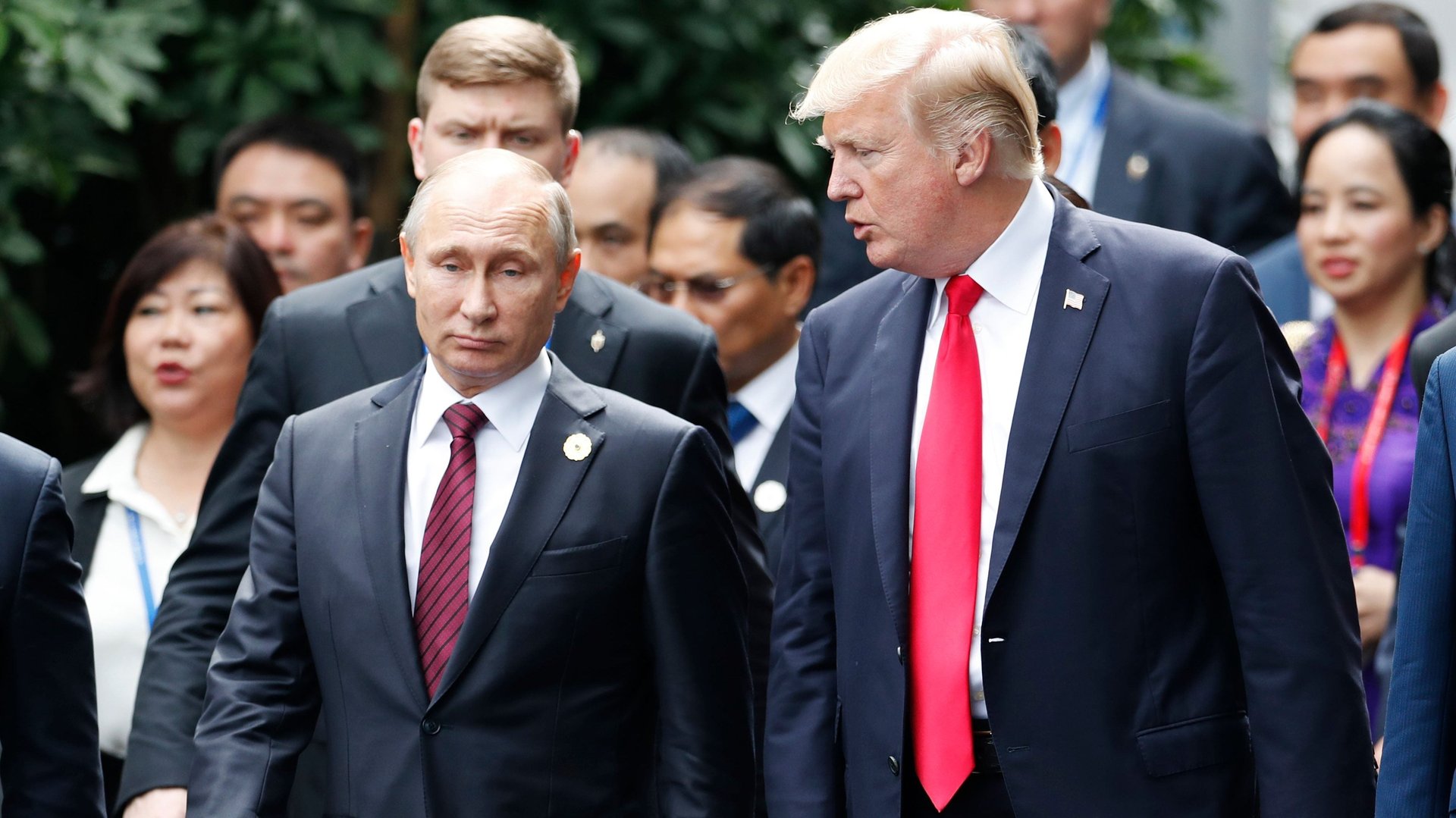Leaving the Iran deal would play right into Putin’s hands, says a former US ambassador to Russia
Supporters of the Iran deal have no shortage of reasons for president Donald Trump to stick with it: The deal appears to be succeeding in its aim of forcing Iran to cut its nuclear stockpile. All of the closest US allies back the deal (except Israel and Saudi Arabia). Backtracking on promises would damage the US’s chance of a deal with North Korea.


Supporters of the Iran deal have no shortage of reasons for president Donald Trump to stick with it: The deal appears to be succeeding in its aim of forcing Iran to cut its nuclear stockpile. All of the closest US allies back the deal (except Israel and Saudi Arabia). Backtracking on promises would damage the US’s chance of a deal with North Korea.
Michael McFaul, former US ambassador to Russia and author of the new memoir From Cold War to Hot Peace, has one more reason to keep the deal: Abandoning it would play right into Russian president Vladimir Putin’s narrative that the US is untrustworthy.
McFaul worked on the Iran deal under Barack Obama. In a phone interview with Quartz, he recalled the lengthy talks held between the Obama administration and the P5+1 (the five permanent UN security council members plus Germany, which allied to negotiate the deal with Iran) to create the deal. Based on the Trump administration’s current lack of “diplomatic enthusiasm” for renegotiation, McFaul predicts the US will walk away from its historic agreement.
“Russia will be fine with that because they will be on the side of the rest of the international community. We—the Trump administration and the United States—will look like the outliers; we will look like the non-cooperative ones and Russia will look they’re like part of international law and cooperation,” he said.
“[It’s] not unlike what we did with the Paris climate change accord; that we then become the outsiders of an international system that we helped to create. I don’t think that serves America’s national interests,” he said.
Trump has said he will decide whether or not to leave the deal by May 12. The US president has consistently railed against the deal, which he says is “terrible,” since it eases sanctions and helps enrich Iran. He and close allies Israel and Saudi Arabia view Tehran as the source of many of the Middle East’s problems. Newly hired foreign policy advisors such as secretary of State Mike Pompeo and national security advisor John Bolton also staunchly oppose the agreement.